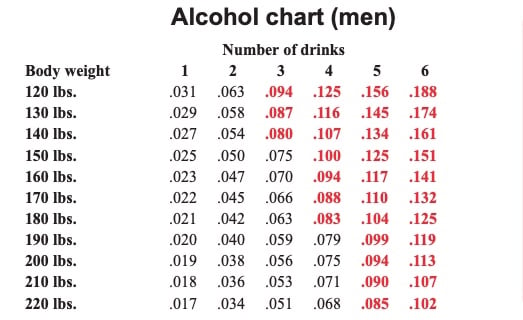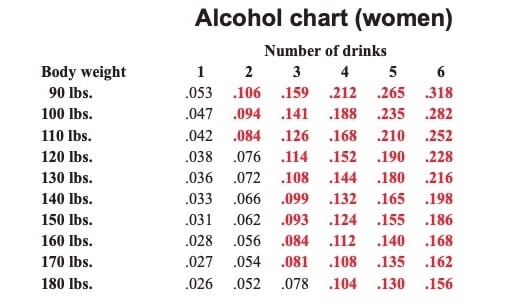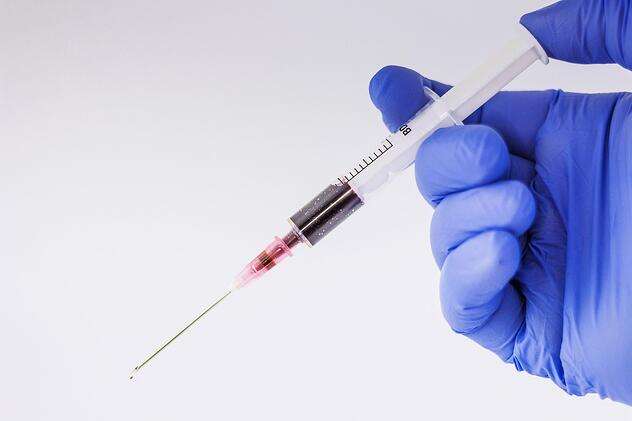Drunk driving terminology can get confusing. With acronyms like OWI, DUI, DWI, BAC just to name a few, you may find yourself encountering words you don't understand if you're facing charges of operating under the influence of an intoxicant in Wisconsin for the first time.
Stangl Law understands simply facing criminal charges is stressful enough, without having to struggle to understand the meaning of what you are reading in documents and other paperwork related to your arrest.
This article will make these complex terms easier for you to understand and offer additional important information if you find yourself facing drunk driving charges in the Badger state.
If you have been pulled over on suspicion of operating under the influence of an intoxicant (OWI) such as drugs or alcohol, read the article, "Checklist: What to Do if You're Pulled Over for OWI in Wisconsin"by Stangl Law.
What is BAC?
What Does BAC Stand for?
BAC stands for blood alcohol concentration.
This number is crucial to your case. It represents the results of testing to identify the percentage of alcohol in your bloodstream. This level can be determined through a breath test or breathalyzer, like the Intoximeter EC/IR II or through chemical testing.
What Does PAC Mean?
If BAC represents your results from testing, what is PAC? Prohibited alcohol concentration or PAC is the level of alcohol in your bloodstream which the law determines you are legally intoxicated.
What Is the Legal Blood Alcohol Level in Wisconsin?
In Wisconsin, you are considered to be intoxicated and in violation of the state's prohibited alcohol concentration law if you are found to have a BAC of 0.08% or above.
A PAC charge would be added in addition to drunk driving charges.
However, some individuals could be considered over the legal limit with a lower BAC, such as commercial drivers, minors, and those with prior OWI offenses.
How Do You Tell What Your BAC Is?
There is no exact method to determine how much a person has to drink to become legally intoxicated.
This is because each person's body processes alcohol differently, and the rate that you, as an individual, become intoxicated will vary depending on factors like:
- Weight
- Health
- Level of fatigue
- Biological sex
- Food intake
- Medications
- How much you’ve had to drink
- How long you’ve been drinking
- How quickly you've been drinking
At the same time, the DOT has created these charts to give you an approximate idea how many servings of alcohol could cause you to become legally intoxicated.


What Does "One Drink" Look Like?
With so many types of drinks and proofs of alcohol, it can be difficult to gauge what "a drink" looks like.
Here are some general examples:
- 1 oz. of 100-proof hard alcohol
- 12 oz. of beer, or
- 4 oz. of table wine
Naturally, beverage preparation, ingredients, and quantities effect the alcohol content of a drink.
"Alcohol is not digested like food. Instead, once it gets into your stomach and your large intestine it’s primarily absorbed into the blood and then it's circulated through the entire body until it reached what we call equilibrium. But, food will slow down the absorption of alcohol." - Attorney Pat Stangl
How Is BAC Measured and How Do Tests Work?
Your BAC level can be determined through a breath test or breathalyzer, like the Intoximeter EC/IR II, or through chemical testing.
When law enforcement suspect that your BAC is over the legal limit, they proceed with a chemical test after you have been arrested and are in custody. In Wisconsin, this will be either a blood or breath test. You may also be asked to go to another location for testing.
As a condition of implied consent, you cannot legally refuse to submit to these tests.
Potential Consequences of BAC Tests
If a chemical test finds that your were driving while over the legal limit, A PAC charge would be added in addition to drunk driving charges.
However, while you can be charged with both an OWI and a PAC, you can only be sentenced to one. In Wisconsin, sentencing guidelines vary depending on your judicial district, which are made up of counties. Check this resource to find your district.
Penalties for OWIs vary depending on the details of your case, but here are some potential consequences:
- First-offense OWI: Significant monetary fines or forfeiture ranging from $150–$300, surcharges, IID installation or 24/7 sobriety program, and driver's license revocation.
- Second-offense OWI: Possible jail time (up to 6 months), significant monetary fines of $150– $1,100, surcharges, IID installation or 24/7 sobriety program, and driver’s license revocation.
- Third-offense + OWI: felony charges, heftier fines, longer jail or prison time
See more potential penalties >>
Not Sure If You Should Drive?
If you're unsure whether you should drive, try one of these alternatives instead:
- Get a lift from a sober friend
- Take a taxi
- Use a ridesharing app like Lyft or Uber
- Take public transportation
- Walk home
- Call someone you trust nearby for a ride
- Stay the night (if you're at someone's home and feel comfortable doing so)
- Walk to a hotel nearby
Other Common OWI Terms
What is the Difference Between DUI, DWI and OWI?
In Wisconsin, the legal term for drunk driving or driving while high or impaired by alcohol or drug use is operating while under the influence of an intoxicant or OWI. OWI is known by a number of different terms or acronyms across the country.
In Illinois, for example, the charge is driving under the influence or DUI while impaired by alcohol or drugs. This same charge is known as driving while intoxicated or DWI in Minnesota.
Depending on the state you are from, you may know this charge by still other terms including: OUI or operating under the influence, DUIL or driving under the influence of liquor, OMVI or operating a motor vehicle while intoxcated or even OVI or operating a vehicle under the influence.
If you have been charged with any drunk or impaired driving charge in Wisconsin, you should consult a knowledgeable and experienced criminal defense attorney who specializes in OWI cases.
What Does BUI Mean?
In Wisconsin, operating a boat while under the influence is legally referred to as intoxicated boating, though the common or popular term in Wisconsin culture is BUI, standing for boating under the influence.
What Does PC Mean?
If you see, "PC" written on any documentation you received stemming from an arrest for drunk driving, it stands for probable cause.
This is a justification law enforcement uses when pulling you over to investigate for possible intoxicated driving. In even simpler terms, it's why police pulled you over.
What Does DL Stand For?
If you see, "DL" on paperwork associated with a drunk driving traffic stop, it simply stands for driver's license.
After pulling you over, the police will ask to see your driver's license. If the officer runs your license and finds you are driving while suspended (DWS) or driving while revoked (DWR), you will face additional charges because you are breaking the vehicle code (VC) and will likely be taken to jail.
If your license is in order, the police will continue with their investigation for drunk driving.
What is an FST?
An FST is a field sobriety test. In order to support the officer's suspicion you may be intoxicated, he or she will need to identify evidence during the traffic stop. An FST is one method law enforcement uses in order to try to help establish this evidence.
Officers may request any number or combination of FSTs, but the most common include the horizontal gaze nystagmus (HGN) test, the walk-and-turn (WAT) test and the one-leg stand (OLS) test.
Note: FSTs are voluntary, unless you have a commercial driver's license. Drivers operating under a regular license have a legal right to refuse these tests. It might even help your case, as FST results are often inaccurate, yet still can serve as evidence against you.
Breathalyzer and/or breath tests are also considered FSTs. You have the right to refuse this test.
FREE 10-Minute Consultation
With over 32 years of experience aggressively fighting to protect the rights of clients, Madison OWI Attorney Pat Stangl is pleased to extend to you a FREE 10-minute consultation at no obligation to discuss the details of your case and explore your options for defense.
Stangl Law Offices, S.C.



